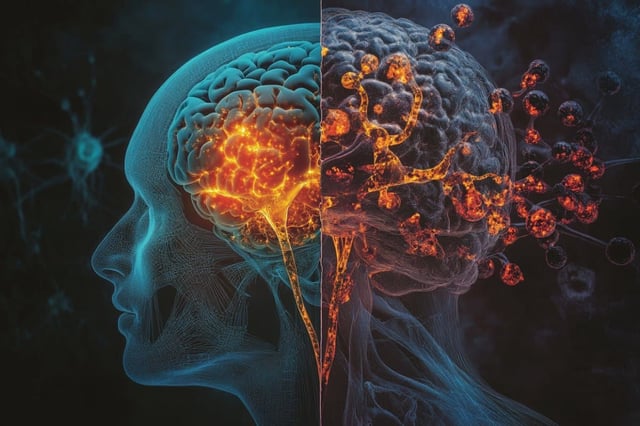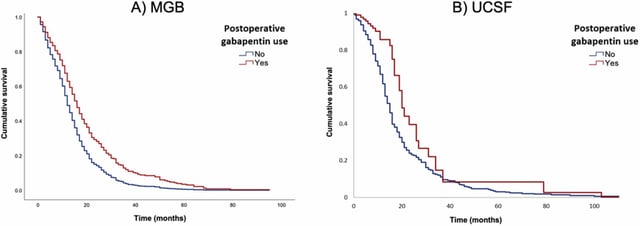Overview
- Researchers at Mass General Brigham and UCSF found that glioblastoma patients taking gabapentin lived 4–6 months longer than non-users in two retrospective cohorts.
- The combined analysis of 1,072 patients revealed survival benefits of 16 months versus 12 months at Mass General Brigham and 20.8 months versus 14.7 months at UCSF.
- Gabapentin was associated with reduced levels of thrombospondin-1 (TSP-1), a protein linked to tumor-neuron interactions that promote glioblastoma growth.
- Preclinical models suggest gabapentin disrupts TSP-1 mediated signaling, slowing tumor progression, but clinical mechanisms remain under investigation.
- While findings are promising, researchers emphasize the need for randomized trials to confirm efficacy and explore gabapentin's therapeutic role in glioblastoma care.

